- Home
- >
- Blog
OUR BLOG
A collection of stories about our people, our capabilities, our research, and the ever-changing face of our firm.
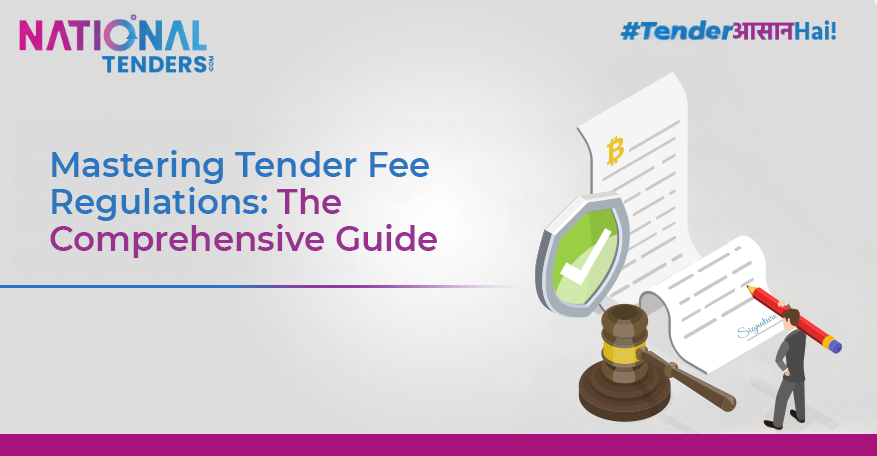
NationalTender
Mastering Tender Fee Regulations: The Comprehensive Guide | 18 Mar, 2024
Mastering Tender Fee Regulations: The Comprehensive Guide
When it comes to participating in tenders, the terms
"EMD" and "tender fee" are often confused by many. While
both are required for submitting a bid, they serve different purposes and have distinct
processes.
Many tenders require both while submitting the bid. An
earnest money deposit is a kind of security deposit that bidders provide to
show their serious intent to participate in the tender process.
On the other hand, the tender fee is an administrative cost
charged by the tendering authority for processing the bid.
In this article, we will delve into the intricacies of tender fees, how they
differ from EMD, and whether they are refundable or not. By understanding the
complete process, bidders can navigate the bidding process more effectively and
avoid any confusion or misunderstandings.
What is Tender Fee?
Tender fee refers
to the cost that is required to participate in a tendering process. When an
organization or government entity puts out a tender for a project, potential
bidders are usually required to pay a tender fee in order to submit their bid.
This fee helps cover the administrative costs of processing the bids and
ensures that only serious contenders are participating in the process. The
amount of the tender fee can vary widely depending on the size and complexity
of the project, with larger projects typically requiring a higher fee. It is
important for potential bidders to carefully review the tender
documents to understand the fee requirements and ensure that they
are able to comply with them before submitting their bid.
Is tender fee refundable?
This fee covers the administrative costs associated with
reviewing and evaluating tender documents submitted by potential bidders. It
helps to ensure that the process is fair and efficient for all parties
involved. While it may seem like an additional expense, it is necessary to
cover the costs of conducting a thorough evaluation of each tender submission.
It is important to note that the tender fee is
non-refundable, meaning that even if you are not awarded the contract, you will
not receive a refund of the fee you paid to submit your bid. This is because
the fee is tied to the costs associated with evaluating your bid, which are
incurred regardless of the outcome.
Is Tender Fee Mandatory?
Yes, If the tender details specify that a bidder must pay a
specific amount as a tender fee, it is compulsory to make this payment. Failure
to pay the tender fee will result in your bid not being considered. Even if you
submit all the required documents on time, the bid will be rejected if the
tender fee is not paid on time. The CPP platform strictly enforces deadlines
and does not accept late submissions.
In the modern era of eTendering, most tender fees must be paid online. It is
advisable to pay the tender fees in advance online rather than waiting until
the last day to prevent any technical issues.
It is important to
carefully read all the terms and conditions mentioned in the tender
announcement and ensure that you fulfill all requirements including payment of
the tender fee within the specified deadline. Failure to do so can result in
your bid being rejected, regardless of how strong your technical and financial
proposals are. So, make sure to prioritize the payment of the tender fee to
avoid any unnecessary complications in the tendering process.
How is the Tender Fee Different from EMD?
|
|
Tender Fee |
EMD |
|
Meaning |
The tender fee is a charge for the evaluation of
documents. |
Earnest money deposit , also known as bid
security, is charged to ensure that the bidder does not modify or withdraw
their offer once the contract is awarded. |
|
Refund |
The tender fee is non-refundable, regardless of whether
the contract is awarded or not. |
If your bid gets turned down, the buyer gives back your
EMD within a set time. But if you win the contract and then decide to back
out or change your offer, you don't get the EMD back. |
|
Compulsion |
Tender fee is compulsory if mentioned in tender T&C.
If a bidder fails to make the deposit, their bid document will not be
considered or opened. |
EMD is also compulsory in the tendering process. |
|
Exemption |
MSEs bidders are exempted from payment of big fees. |
Firms registered with NSIC/MSE/DPS are exempted from
payment of EMD |
|
GST |
18% GST is applied on processing fees for government
tenders. |
GST is not applicable on Earnest money deposit |
Wrapping Up
Understanding tender fee regulations is essential for
businesses to thrive in competitive markets. This guide offers clear insights
to navigate these regulations, optimize financial strategies, and enhance
success in the tendering process. Staying informed and proactive is crucial as
regulations evolve. With this guide, businesses can confidently make informed
decisions and seize opportunities for growth because “National
Tender hai toh tender aasan hai“.
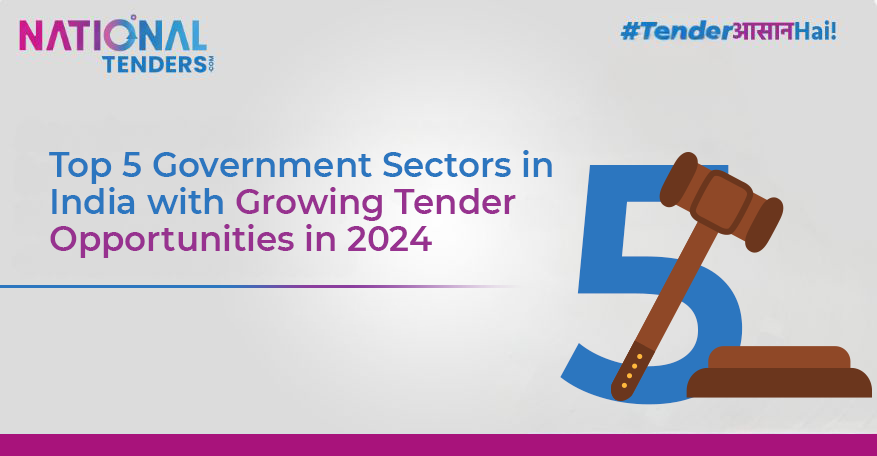 Top 5 Government Sectors in India with Growing Tender Opportunities in 2024
Top 5 Government Sectors in India with Growing Tender Opportunities in 2024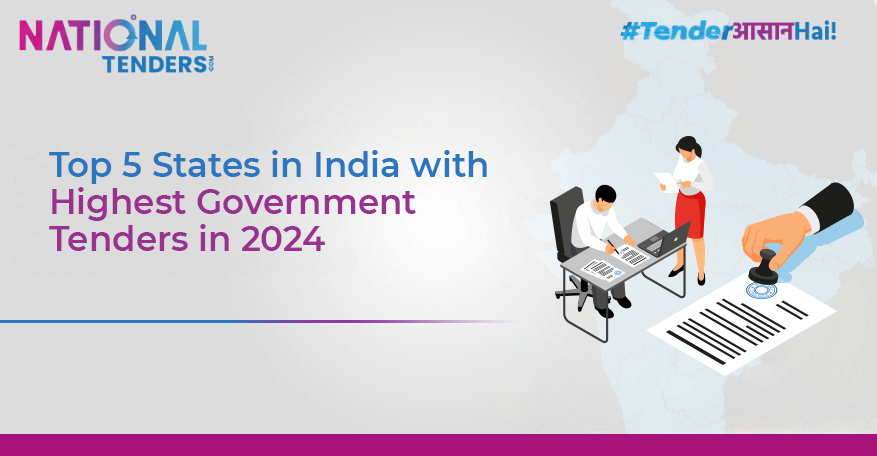 Top 5 States in India with Highest Government Tenders in 2024
Top 5 States in India with Highest Government Tenders in 2024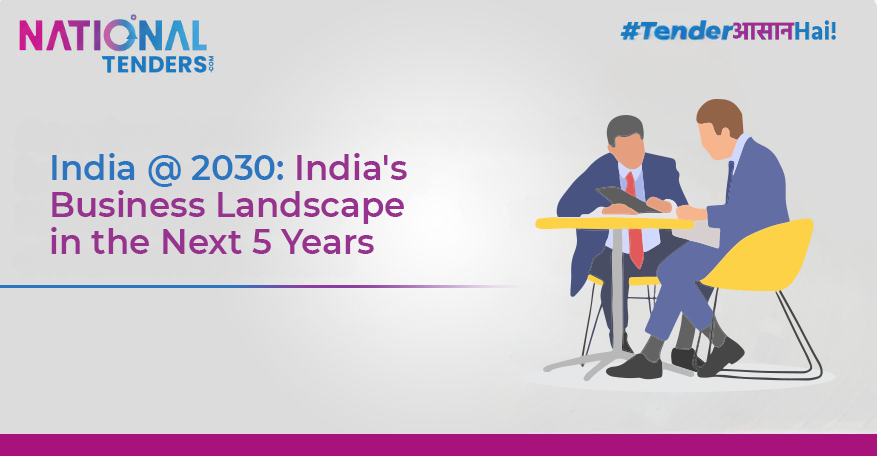 India @ 2030: India's Business Landscape in the Next 5 Years
India @ 2030: India's Business Landscape in the Next 5 Years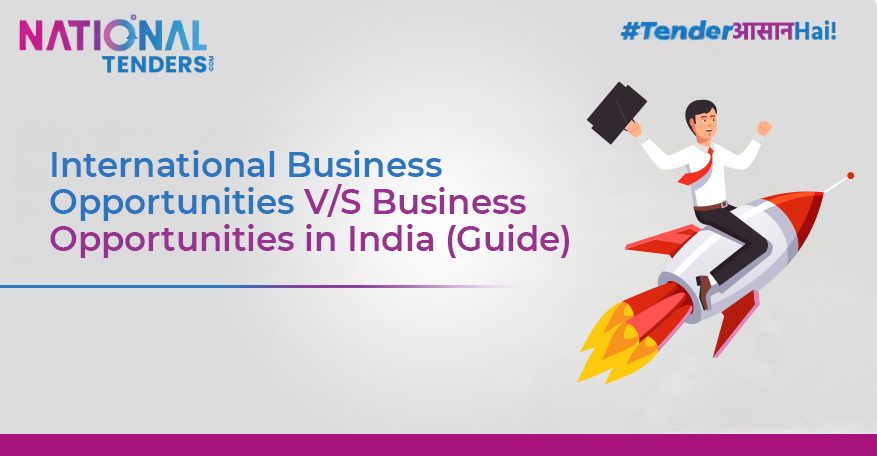 International Business Opportunities V/S Business Opportunities in India (Guide)
International Business Opportunities V/S Business Opportunities in India (Guide)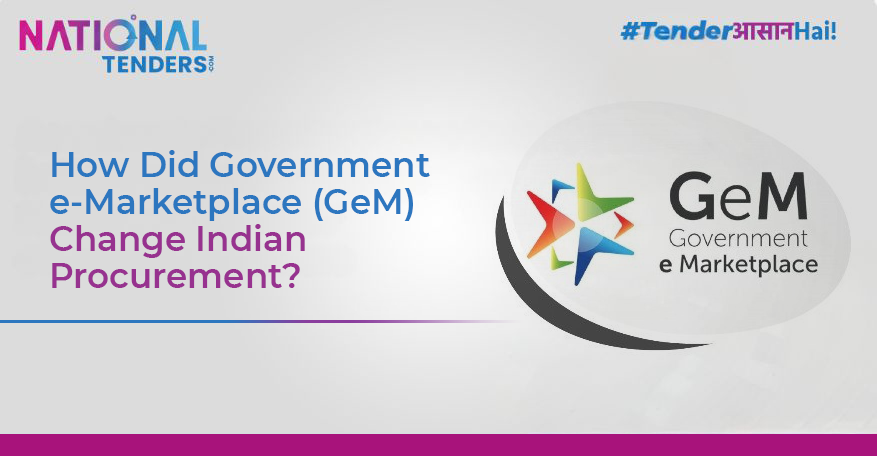 How Did Government e-Marketplace (GeM) Change Indian Procurement?
How Did Government e-Marketplace (GeM) Change Indian Procurement?